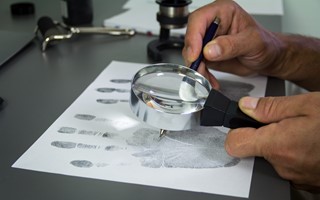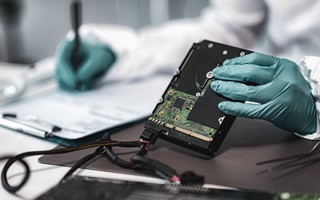News May 18, 2020 2m
The use of unaccredited and poorly regulated police “experts” in firearms investigation continues. This issue is underlined in the Forensic Science Regulator’s newsletter (No.34 April 2020). Reports presented by police staff if left unchallenged open the doors to unverifiable evidence being permitted into trials.
Whilst the Forensic Science Regulator (FSR; the advisory regulation board to promote quality and validity in Forensic Science in the Criminal Justice System) supports the Crown Prosecution Service (CPS) guidance that forces should conduct all classification of firearms “Budgetary restrictions coupled with increased demand for accredited forensic services has promoted the use of in-house ‘experts’ to carry out the classifications of firearms. Cases therefore progress with non-expert ‘evidence’ that, if unchallenged, can be presented in court.
As far as we are aware, currently there has been no formal advice directed to the CPS or the Judiciary from the FSR to prevent prosecution of a case on non-expert evidence, including cases in which in-house police have conducted the classification of weapons in in-house facilities. Forensic Access has witnessed cases where forces have chosen non-expert in-house processing of firearms versus sending it to their tendered, accredited, forensic services provider (FSP).
Whilst this could mean ‘non-expert evidence’ against a defendant being misguidedly upheld in the same manner that evidence from an accredited FSP is; all is not lost. The matter hinges on whether the statements are challenged. Once challenged, police in-house ‘expert’ classifications and findings will be requested to comply with the further advice from the CPS. That is the findings ought to be accompanied by “a further examination… …conducted by an expert from a forensic unit that is accredited to ISO 17025, and [this] second statement served on the defence.”
Unfortunately, the onus of responsibility to spot and challenge evidence submitted (that does not best represent these standards) falls on the side of the defence’s legal representation. This is likely to be the situation until the appointment of a new Forensic Science Regulator at the end of the year, as Dr Gillian Tully finishes her six-year term in November 2020 and that regulator is given the teeth and statutory powers to make any such guidance binding upon the CJS.
Defence solicitors and barristers should be vigilant in checking these two things;
- The role or registration section should say ‘Forensic Scientist’- Has it been signed off by police staff or an “armourer”?
- Is the email on the report a police email, e.g. from a police force domain?
Forensic Access has a dedicated casework team with staff backgrounds that include operational and police detective roles, this provides a fantastic service for case advice for anyone working on such cases in the legal profession.
So, Legal Professionals: Caveat Emptor! Not everything is as official as it seems…
Contact us for a free case consultation, which always includes checking for the above issues and more. You can discover more legal insights into forensics by watching our webinars, our Legal Lunch series includes instruction on SFRs and Fragmentation in forensics.
To find out more about our Firearms services offered by Forensic Access fill-in our online contact form or Tel: 01235 774870 to speak with our team.


